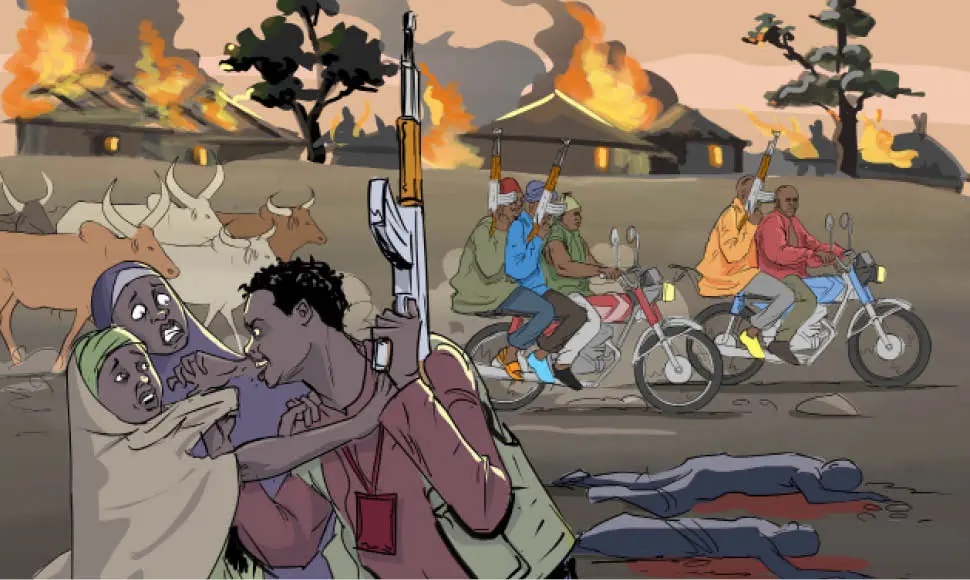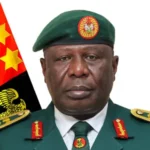A consortium of humanitarian partners led by the Mercy Corps Nigeria, has called for a concerted effort to end violent extremism and improve peace and security for communities hard hit by the insurgency in Borno State.
The Mercy Corps Country Director, Ndubisi Anyanwu, made the call Wednesday in Abuja, at the North East Conflict Management and Stabilization (NECMS) Programme joint consortium learning and presentation of reports.
According to him, the consortium had completed the implementation of a unique initiative to improve security, reduce support for violence and build the capacity of citizens of Borno State to hold government accountable in communities hard hit by the insurgency in the state.
Other consortium partners were, UK Foreign, Commonwealth and Development Office (FCDO), Center for Civilians in Conflict (CIVIC), Centre for Humanitarian Dialogue (HD) and Okapi Consulting/Radio Ndarasan International, Women in Nigeria and Christian Association of Nigeria (CAN).
Anyanwu noted that over the past five years, the NECMS programme has worked to improve security and reduce support for violence in Borno State with implementation across 21 communities of Damboa, Dikwa, MMC, Jere, Gwoza and Konduga LGAs.
The initiative, Northeast Conflict Management and Stabilization (NE-CMS) programme responded to local level conflicts that are driven by the insurgency and supported target communities to become more peaceful and resilient to the drivers of conflict and violence, including recruitment into the insurgency.
Anyanwu noted that there are several complex issues fuelling the prolonged crisis in the region, from unsatisfactory relations between citizens and government as well as traditional systems of exclusion.
“On Borno State, our pre-implementation assessment observed deep tensions from social and political conflicts within local communities, including inter-ethnic, inter-generational, and IDP-host communities’ conflicts resulting in economic exclusion.
“In order to ensure lasting peace, we worked closely with key stakeholders to strengthen and establish several channels for discourse between the government, the military, community leaders and the people towards improving the security situation and protection for the people of Borno state.”

On his part, the Programme Manager, Paul Enude said, “Committee members are representatives of various communities, trained by the NE-CMS programme, empowering them with the skills to better advocate for their needs, carry out conflict resolution and civilian protection. Initiatives led by the groups have provided new community infrastructures for those in need and improved the relationship between the military and civilians.
“To address specific community needs and proffer solutions that were community structures were established across all the 21 communities, including the Good Governance Committee, Conflict Management Committee, Youth Support Networks, Women Councils, Psycho-social Support Groups and Community Protection Committees.”
Also, the Country Director, Center for Civilians in Conflict (CIVIC), Mujidang Sitdang, said that the initiatives led by the groups have provided new community infrastructures for those in needs and improved the relationship between the military and civilians.
He said, “It is significant that despite the challenges of relationship building with government institutions in Borno, along with the particular complexities occasioned by the insurgency, Mercy Corps has generated meaningful buy-in from representatives in the House of Assembly, Ministry of Local Government and Chieftaincy Affairs, and Directors of Planning.
“These stakeholders have noted the uniqueness of Mercy Corps’ approach in treating them as partners in programming, rather than as a means of attaining official authorization.
“As a result, government actors have demonstrated clear commitment in activities. Approximately 95% of invited government representatives turn up at all dialogue sessions with community members, traditional leaders, the media and civil society representatives.”
He said that the programme learnt that intermediary approaches like advocacy through community volunteers is proving to be a veritable tool in helping communities’ combat COVID-19 misinformation.
On her part, Joy Aderele, the NE-CMS Programme Consortium Manager, Mercy Corps, said, “During the pandemic, we adapted our approach to support Borno State COVID-19 task force to review its COVID-19 Prevention and Response Plan (PRP) to ensure both community and government level participation in ensuring effectiveness in its response.”
Also, Millicent Lewis-Ojumu, Country and Programme Manager for Centre for Humanitarian Dialogue, said, “The programme worked to influence policy at the state and community levels using alternative narratives that provided tools for a continuous dialogue for brokering peace not just in Borno state, but as a blueprint for the entire northeast region.”

 Join Daily Trust WhatsApp Community For Quick Access To News and Happenings Around You.
Join Daily Trust WhatsApp Community For Quick Access To News and Happenings Around You.


